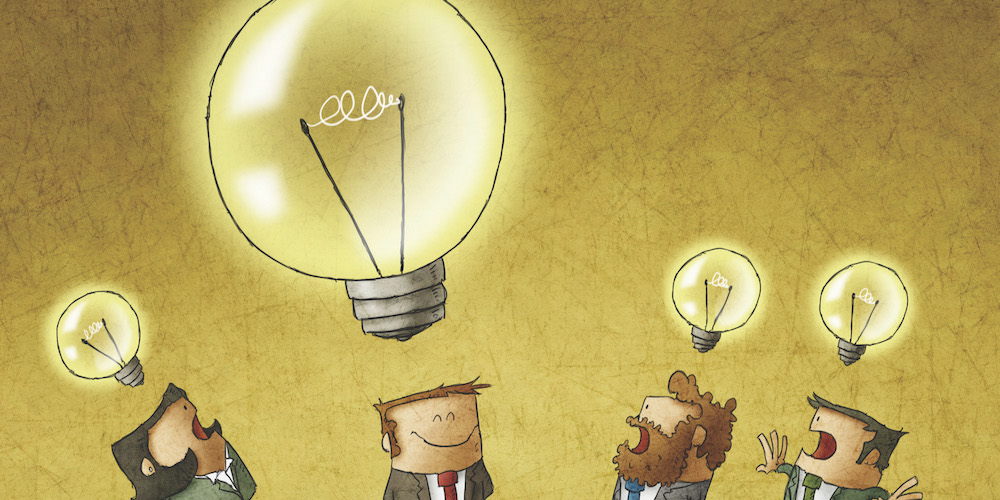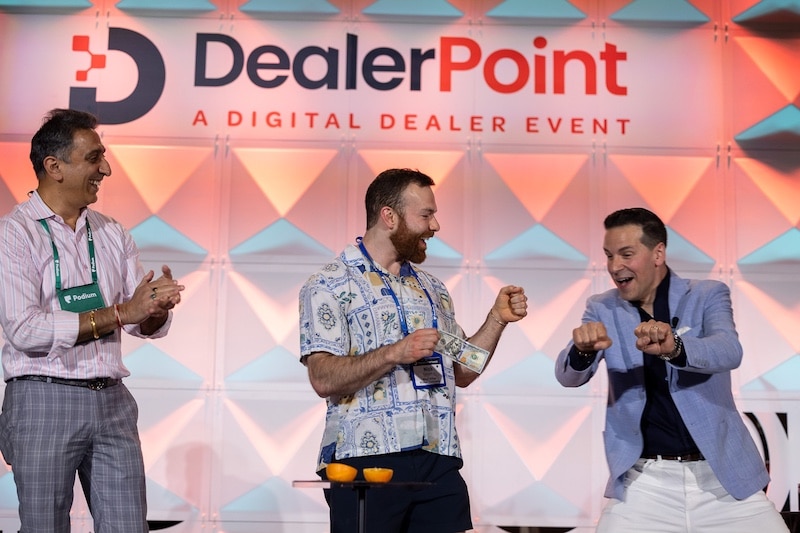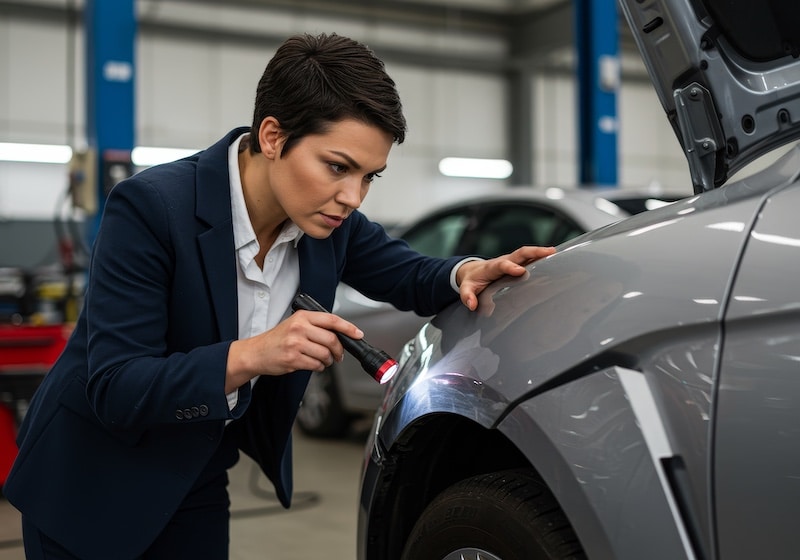Life used to be simple. People would stay in a hotel when they needed somewhere to rest their weary head while traveling. As long as a room had a comfortable bed, working air conditioning, and a television, it was good to go.
Now, people expect more. A lot more. Hotels compete to make their visitors’ stays even more comfortable, seamless, and pleasant. They utilize the latest products and technologies to provide customers with the greatest possible experience. After all, the entire industry is contingent upon people enjoying their stay, so that they return or recommend others to the hotel. Other industries and businesses that revolve around customer experience have a lot to learn from the innovations currently hitting the hospitality industry. This is particularly true for dealerships. The car buying process can be difficult for shoppers, and a customer’s experience is often the most important factor. In fact, 54% of car buyers reported that they would buy from a dealership with a better customer experience, even at a higher price. 72% said they would visit dealerships more often if the buying experience was improved.
Dealerships might not want to start placing small chocolates on the seats of each its cars (although that does sound like a nice treat), but there are several things that dealerships can learn from the hospitality industry about providing the best possible customer experience.
Innovation is not automatic
The hospitality industry has recognized that innovations don’t simply happen- you must have processes in place to identify problems or areas for improvement, to then create solutions. Without constant testing and assessment, it’s almost impossible to even notice things that should be improved upon. One of the biggest issues facing the hospitality industry to date is the unnecessary use of heat and air conditioning. One hotel recognized (https://socialhospitality.com/2014/09/tech-innovations-that-are-changing-the-hospitality-industry/) that the money spent on electricity could be put to much better use. It installed heat sensors that could detect if a person was present to only provide heat when someone was actually in the room. As a bonus, staff members were able to determine if someone was in the room without knocking- no “do not disturb” sign necessary.
This innovation was the result of one hotel’s recognizing an issue, in this case a major resource being wasted, and thinking of ways to solve it, without compromising on its customers’ experience. It is precisely this type of thinking that every dealership needs to adopt, to stay ahead of the curve. Determine what your dealership is spending the most time or money on- ask yourself, can this be cut in any way? For example, if your staff is spending 50% of their time manually inputting data into the CRM after meeting with a customer, think of ways you can help them streamline the process. Perhaps they should carry iPads with customized forms that will enable them to quickly and easily take notes throughout a meeting. This is a relatively simple solution that is easy to implement. The only way innovation and improvement can happen is if your dealership is actively looking for issues to address. Encourage your staff to provide feedback, both formally and informally, so that you know their pain points and areas for improvement.
The way to their hearts is through their phones
21st century customers are hyper-connected. They have grown accustomed to using their phones to accomplish all sorts of tasks. From a mobile device you can order and pay for products and services, reserve tables at restaurants, check in for a flight, and even adjust the lights in your home from anywhere in the world. Knowing this, some hotels have forgone room keys (http://www.mitel.com/blog/top-10-communication-tech-trends-hospitality) all together, allowing users to simply scan their mobile devices to unlock their rooms. Others allow visitors to pair their phones with their rooms– after all, why should a guest who has become accustomed to their “Smart Home” have to put up with an outdated, tech-free hotel room?
Dealerships can, and have already begun to, utilize technology in a similar way. Take advantage of your customers’ comfort with and reliance on mobile devices to improve the entire buying process. For example, utilize tools that allow shoppers to upload their documents into an online profile before coming into your dealership.This saves both the shopper and your staff time, by allowing you to prepare for your upcoming meeting while also cutting out the time spent scanning at the dealership. It also minimizes the likelihood that someone will forget to bring an important document to their meeting. The opportunities are endless once you start taking advantage of mobile devices– you can send notifications about a purchase, lease, or appointment directly to a shopper’s phone, either through text or by way of a dedicated mobile app. Customers can receive directions to your dealership directly to their phones. These innovations allow customers to interact with you in the ways they have become accustomed to in every other area of their lives.
Give each customer the experience they appreciate
The Four Seasons offers three different mattress toppers for every bed in its hotels, to ensure that every guest sleeps according to his or her preferences. This solution is super low-tech: the mattresses are actually changed in order to accommodate each visitor. This might seem like a waste of resources to some, but the chain has determined that guests appreciate the ability to customize and personalize their stay, and especially their bed.
This hits on one of the most important things that dealerships can learn from the hospitality industry: customers are coming to demand a highly personalized experience. In this case, they would like their mattress to perfectly match their preferences. In the auto industry, they want their entire buying process to be tailored to their needs, from their first experience on your website and through a visit to your showroom. On your site, shoppers should be shown content that is relevant to them, based on previous browsing behavior. They should be prompted to enter the next logical stage of the funnel– for example, a shopper who seems ready to move forward with a specific vehicle should be offered the opportunity to book a test drive. Being asked if they’d like a service appointment would be irrelevant and frustrating to them. In your showroom, your salespeople should be armed with as much information as possible, including previous browsing history, so that they can provide the customer with a highly personalized experience. Customizing every step of the buying journey to each shopper’s preferences makes them feel more comfortable and valued, and will drive them to return to your store.
Hear what your customers are saying
The hospitality industry recognizes that people decide where to stay based on reviews and word of mouth. This is especially important as companies like Airbnb become more popular. These platforms offer guests a cheaper alternative to hotels, based on a vetting process as well as previous customer reviews. Hotels have begun using social listening tools to gather as much information as possible from their guests, even if they do not write a formal review. Social listening is the process of closely monitoring social media (as well as other pages like blogs and review sites) for mentions of your business, your competition, or the industry in general. You draw conclusions not only from metrics, but also from the tones and sentiments expressed. The conclusions drawn from these findings should directly impact how you conduct business.
Dealerships of the future can use these same types of methods to gather business intelligence about their own store as well as their competitors, and to gain insight into their shoppers’ experiences. Social listening tools can also allow you to better track your own online presence, to identify areas for improvement in your own marketing strategy. Take the time to hear what your customers and prospects are saying and doing.
Some of these innovations may sound unnecessary and oddly futuristic, but the hospitality industry is embracing them in order to keep up with the sophisticated and advancing preferences of 21st century guests. By recognizing the importance of a pleasant customer experience and identifying areas for improvement, hotels are implementing real changes that will ultimately lower their own costs and attract more guests. Dealerships should learn from their example and take a critical look at how they do business, and how they can improve. The innovations and solutions that are born out of this type of thinking should all revolve around the same fundamental goal: providing your customers with the best car-buying experience possible, and closing more sales.
About the Author
Neal Santosuosso is a Regional Sales Manager at AutoLeadStar. A veteran in the automotive industry, Neal is passionate about identifying ways to help dealerships translate their business goals into reality. He is always eager to learn about how the latest technologies can help dealerships solve their problems, no matter how big or small. EMAIL: [email protected]








